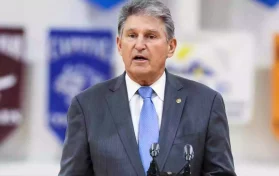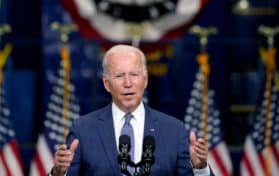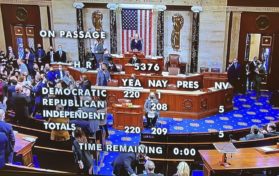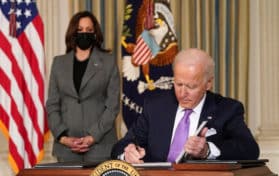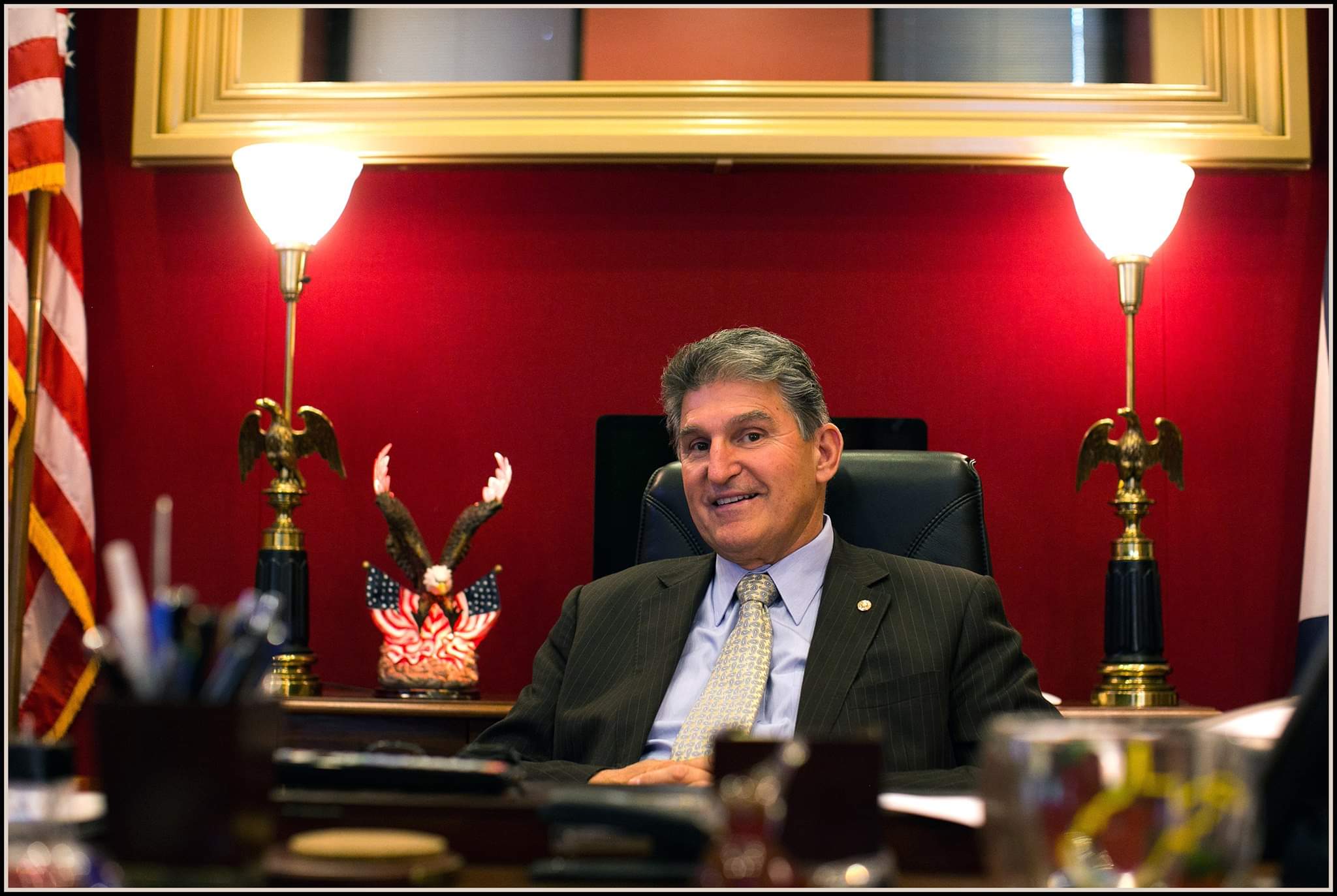
On Monday, West Virginia Senator Joe Manchin held a press conference where he addressed the infrastructure bill and the Biden spending bill which seem to be at a standstill on Capitol Hill.
During this televised appearance, Manchin lamented that progressive Democrats are holding the bill “hostage.” He also made it clear that he would not support the spending bill proposed by his more left-leaning colleagues “without a thorough review of how its policies would impact the U.S. economy.”
Both Manchin and Arizona Senator Kyrsten Sinema have been unwavering in their stance where the bill that would cost at a minimum $1.75 trillion over ten years is concerned. Democratic leaders had hoped to have a vote on the bill by November 1, but what appears to be polarization among members of the Democratic party have stalled a vote.
Manchin said on Monday that the bill creates programs that are slated to end at a certain time, and that the costs outlined in the spending bill detail the cost of these programs during that time period only. He chided the press on Monday, saying that the programs would be reinstated over and over, that “future Congresses” would simply renew the programs – and that’s a cost that cannot be calculated in the current bill.
“Simply put, I will not support a bill that is this consequential without thoroughly understanding the impact it will have on our national debt, our economy and the American people . . . Every elected representative needs to know what they are voting for and the impact it has, not only on their constituents, but the entire country.”
Manchin also spoke to Congress‘ apparent tone-deaf response to a recent sharp rise in inflation and the national debt. He said that adding to the debt with this spending bill could have serious adverse effects on America’s already embattled economy.
Last week the House Progressive Caucus announced that it would not vote to approve the bipartisan infrastructure bill, which Manchin supports, unless the Biden spending bill was brought up for a vote at the same time. This led to the “hostage” comments by Manchin at the press conference on Monday. The Progressive Caucus is made up of 100 members, with some of the most notable members including Ilhan Omar (D-MN), Ro Khanna (D-CA), Rashida Tlaib (D-MI), and Pramila Jayapal (D-WA). These progressives have demanded that Manchin and Sinema throw their support behind the spending bill; however, the pair has yet to make any concessions.
The Build Back Better Act has undergone several transformations to date; at one time, the bill included money to hire up to 85,000 new IRS agents and would have monitored bank accounts of private citizens who spent $600 per year. After a national backlash on the proposal, the framework was changed so that bank accounts that had deposits of $10,000 or more per year would be up for monitoring. However, citizens still find any monitoring of their bank accounts as a serious invasion of privacy.
The Build Back Better Act also includes some $500 billion in climate-related spending alone. Manchin referred to the spending bill as a “shell game;” he also chided the members of his party for not being transparent regarding the true cost of of the legislation.
Manchin was steadfast in his comments on Monday: “As I have said before, holding this bill hostage won’t work to get my support for the reconciliation bill. I’m open to supporting a final bill that helps move our country forward, but I am equally open to voting against a bill that hurts our country and the American people.”
Manchin and Sinema have been the subject of much controversy in the past two months. Progressive protestors have followed Senator Sinema into a bathroom, where they filmed themselves threatening the senator: “We helped elect you; we can get you out of office too.” That incident is just one of many; several have accosted Senator Sinema as she travels, bombarding her at the airport and in other public places. Allegedly, protestors crashed a weekend wedding at which Sinema was the officiant.
Both sides seem to have dug in, and the fate of the Build Back Better Act hangs in the balance.


